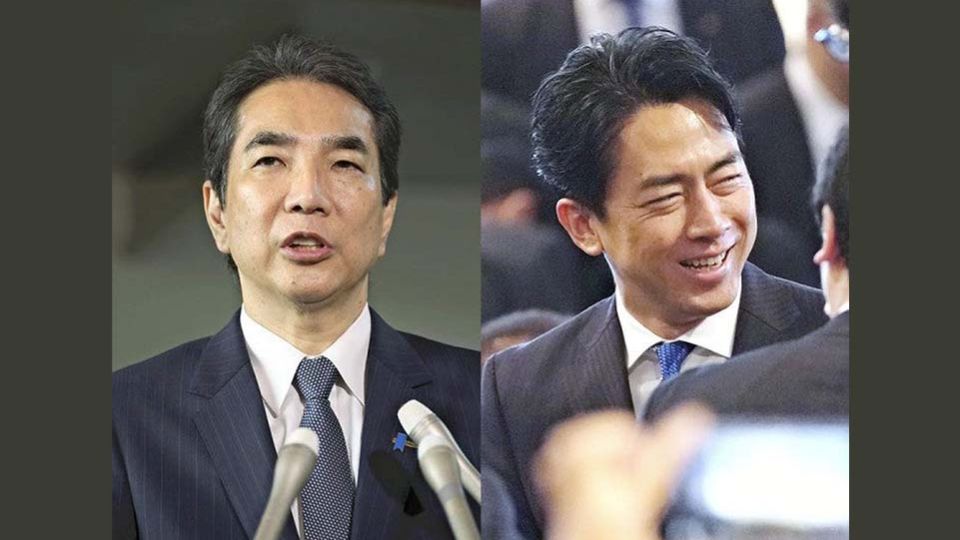May 22, 2025
TOKYO – Prime Minister Shigeru Ishiba on Wednesday dismissed agriculture minister Taku Eto, who was criticized for saying he had “never bought rice.”
Ishiba will appoint former Environment Minister Shinjiro Koizumi as Eto’s successor.
This is the first dismissal from the Ishiba Cabinet. With the House of Councillors election approaching this summer, this will deal a significant blow to the Cabinet, and criticism may be directed at Ishiba, who had initially decided to keep Eto in his post.
On Wednesday morning, Eto visited the Prime Minister’s Office and submitted his resignation. Eto represents Miyazaki Constituency No. 2 in the House of Representatives.
“I made extremely inappropriate remarks,” Eto told reporters after his meeting with the prime minister. “[Measures to tackle] rice prices are entering the most critical stage. I have decided that I may not be the right person to lead the effort.”
Eto quoted Ishiba as telling him that he accepted Eto’s decision.
Ishiba also spoke with reporters afterward at the Prime Minister’s Office. Asked about his initial decision to retain Eto, a position he later reversed, Ishiba said: “It is my responsibility as the person in authority to make appointments. I will accept any criticism.”
“I am choosing a successor who is enthusiastic about agricultural reform and has insight into the field,” the prime minister said.
At a Sunday meeting in Saga, Eto said: “My supporters give me quite a lot of rice. I have so much I could sell it.” His remarks have been criticized as inappropriate coming from the agriculture, forestry and fisheries minister, who is responsible for farming policy, given the high level of rice prices.
Ishiba decided on Monday to retain Eto, who has been elected to the lower house eight times, after giving him a stern warning. The decision was made to avoid a lapse in measures to combat rising rice prices, but prices continued to climb and public criticism of Eto grew stronger.
On Tuesday, five opposition parties, including the Constitutional Democratic Party of Japan, agreed to demand Eto’s dismissal. They indicated that if Ishiba did not comply, they would consider submitting a motion of no confidence against the agriculture minister.
The Liberal Democratic Party, which is led by Ishiba as its president, and Komeito are a minority ruling coalition that does not have a majority in the lower house. If the opposition parties cooperate on a no-confidence motion, it will pass.
A no-confidence motion is not legally binding, but its passage would make replacing Eto increasingly certain. Ishiba had no choice but to make the decision to replace him before he was put in a more difficult position.
CDPJ leader Yoshihiko Noda indicated that he would demand Eto’s dismissal during a debate between party leaders in the Diet on Wednesday afternoon. Apparently, Ishiba’s decision was also influenced by a desire to avoid replacing Eto in response to direct demands from the opposition.
Koizumi: Minister in charge of rice
Later Wednesday, Ishiba met with Koizumi at the Prime Minister’s Office and informed him of his intention to appoint him as Eto’s successor. Koizumi told reporters about the decision after meeting with Ishiba.
Koizumi will officially take office after an attestation ceremony at the Imperial Palace.
“This is a very difficult situation,” Koizumi told the press. “I will do my utmost to respond swiftly to the rise in rice prices, which is the biggest concern for the people in their daily lives. I will approach this issue with the determination of a minister in charge of rice.”
Koizumi has been elected to the lower house from the Kanagawa Constituency No. 11 six times, and has been involved in reforms of agricultural cooperatives as director of the LDP’s Agriculture and Forestry Division.
Ishiba hopes that he will demonstrate his reform skills in lowering rice prices. Koizumi is also known for his communication skills, and it is hoped he can effectively address the public’s dissatisfaction over rice.

